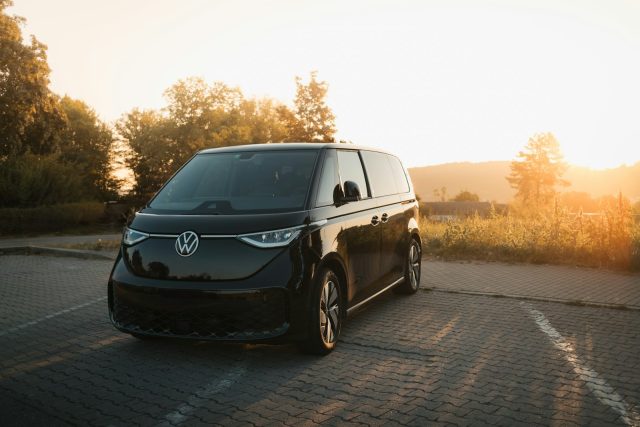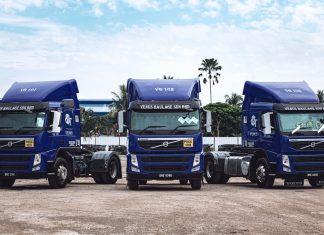
The definition of a successful trip has quietly transformed. It is no longer measured solely by the destination reached, but by the quality of the moments experienced along the way. Today’s travelers, whether embarking on a corporate retreat or a cross-country tour, carry a new set of expectations rooted in a desire for comfort, seamless connectivity, and shared experiences.
This new standard often includes:
- Plush, comfortable seating with ample legroom.
- Reliable, high-speed Wi-Fi and accessible charging ports for all devices.
- On-board amenities, such as refreshments or entertainment systems.
- A clean, modern, and inviting atmosphere that encourages interaction.
The process itself has been elevated from a simple means of transit to an integral part of the event. This fundamental shift places new demands on every facet of the travel industry, particularly on the ground transportation sector, which is tasked with providing the physical environment where these initial experiences unfold.
Operators who once sold mileage are now in the business of curating mobile environments, a change that is sparking a wave of innovation. How companies adapt to this experience-first mindset will ultimately determine their relevance in a market that values the voyage as much as the arrival.
The Process is an Experience-First Environment
The space between Point A and Point B is no longer dead time; it is a vital part of the itinerary that travelers expect to utilize. The modern passenger wants an environment that mirrors the connectivity and comfort of their home or office. Consequently, the contemporary motor coach rental experience is now defined less by its ability to simply move people and more by the quality of its onboard atmosphere.
High-speed Wi-Fi for uninterrupted streaming and work, personal power outlets to keep devices charged, and ergonomically designed seating are no longer considered luxuries but essential components of the service. This transformation turns hours on the road into productive work sessions for a corporate team, a connected social space for a touring group, or a quiet, comfortable retreat for a team of athletes. By investing in premium sound systems, superior climate control, and immaculate restrooms, operators are successfully reframing travel time as valuable, functional, and genuinely pleasant.
Fleet Diversification for Varied Group Needs
The era of a one-size-fits-all transportation solution is over. Group travel is incredibly diverse, and savvy operators recognize that a single vehicle type cannot efficiently serve every need. A university athletic department, a wedding party, and a small executive team all have unique passenger counts, luggage requirements, and desired levels of comfort. For major events, such as moving hundreds of conference attendees from a hotel to a convention center, the logistical efficiency of a 56 passenger coach bus remains the gold standard, providing maximum capacity and a low per-person carbon footprint. Yet, for a dozen-person startup heading to a team-building retreat, such a large vehicle would be both impractical and uneconomical. This has driven the trend of fleet diversification, where companies offer a curated spectrum of vehicles—from full-sized coaches to minibuses and vans—ensuring that every client receives a solution precisely tailored to their group’s size and purpose.
Catering to the Premium and Niche Markets
Parallel to the enhancements in large-scale group travel, a powerful trend has emerged toward specialized, high-end transportation. A growing segment of the market now seeks an experience defined by exclusivity, privacy, and bespoke comfort. This demand has spurred innovation in smaller, more intimate vehicles designed to deliver a premium on-road experience.
An analysis of these key market segments reveals their specific needs and the corresponding vehicle features that cater to them:
| Market Segment | Key Requirements | Corresponding Vehicle Features |
| Corporate Executives | Productivity, privacy, and a professional image. | Mobile conference setups, onboard Wi-Fi, leather captain’s chairs. |
| VIPs & Entertainers | Discretion, high-end comfort, and a statement of style. | Tinted windows, custom lighting, premium entertainment systems. |
| Luxury Family Travel | Safety, convenience, and entertainment for all ages. | Spacious interiors, multiple screens, and refreshment centers. |
These vehicles often feature amenities like plush leather captain’s chairs, custom interior lighting, advanced entertainment systems, and even mobile conference setups. For instance, a luxury sprinter van rental in Chicago perfectly serves the needs of a corporate team on a roadshow, a VIP group attending a premiere, or a family seeking an opulent way to travel between private airfields and resorts. This is not merely transportation; it is a curated environment that offers discretion, style, and functionality, turning the process itself into a statement of prestige and a seamless extension of a high-end itinerary.
The Corporate Commute Reimagined
Forward-thinking companies are increasingly viewing employee transportation as a strategic asset rather than an expense. In competitive job markets and sprawling metropolitan areas, the daily commute is a significant factor in employee satisfaction and retention. This realization has fueled the growth of dedicated corporate shuttle programs. By providing a comfortable and reliable staff shuttle service, businesses can drastically reduce the stress of driving in traffic, allowing employees to start their day more relaxed and focused.
With onboard Wi-Fi, the commute can be transformed into productive work time, effectively extending the workday without extending time in the office. This service also serves as a powerful tool for achieving corporate sustainability goals by reducing the number of single-occupancy cars on the road. It is a tangible employee benefit that enhances company culture, improves punctuality, and solves complex logistical challenges for businesses with multiple campus locations.
Conclusion
The motor coach industry is in the midst of a significant and dynamic evolution, driven by a customer base that values experience as much as efficiency. Its innovation is a direct response to a world where travel time is no longer something to be endured, but an opportunity for connection, productivity, or relaxation. From embedding sophisticated technology into every seat to diversifying fleets for groups of all sizes, the focus has pivoted from simple transit to holistic process curation. This is evident in the strategic application of corporate shuttles and the rise of premium services; a client seeking a luxury sprinter van rental Chicago now represents a core market demanding bespoke travel solutions. The road ahead will be defined by those operators who continue to see their vehicles not just as modes of transport, but as mobile spaces capable of delivering exceptional, memorable experiences.










